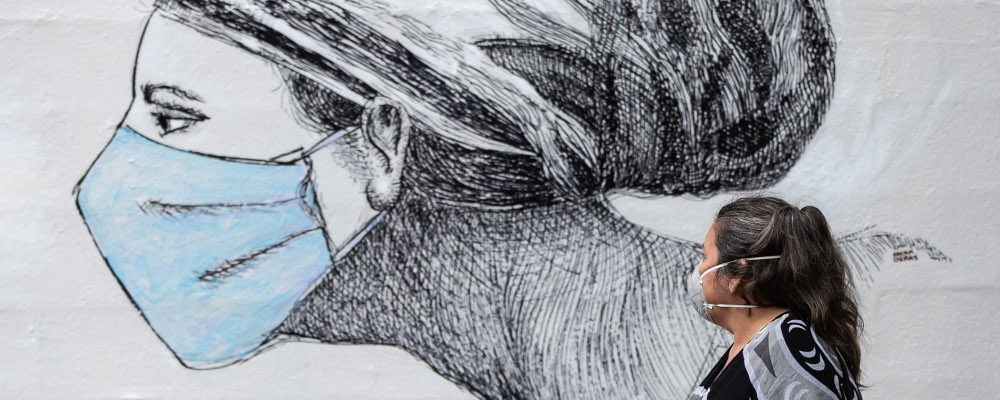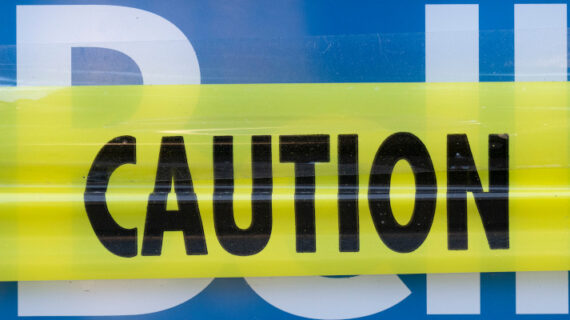Something strange happened this summer. Almost overnight, it felt like we were transported back to the early days of the pandemic — to that month of March we will never forget.
I’m not talking about cases or hospitalizations. The numbers, comparing now and then, speak for themselves. I’m talking about our outlook for the future, and our sense of where we stand now in relation to COVID-19. Many of us seem as anxious today as we were at the start, if not more so.
MORE SIGNAL. LESS NOISE. THE HUB NEWSLETTER.
The initial weeks of the new school year at the university where I teach have been revealing in this regard. On several occasions, colleagues of mine have voiced a significant degree of anxiety over being back on campus and in the classroom again.
I have every reason to believe these colleagues are vaccinated. Almost all the students we teach are vaccinated. We know the vaccines are superb at preventing severe illness and hospitalization. With these facts in hand, I was not particularly anxious about returning to campus. So why are my colleagues worried?
Fear of COVID-19 appears to have resurged during the Delta chapter. Contrary to what one might expect, this fear does not neatly align with vaccination status. I suspect we all know vaccinated persons who remain very afraid of the virus.
The Delta variant poses unique challenges, but we have pulled too many fire alarms in too many places. We need to take a breath and regain our bearings, or else — in a certain respect — this pandemic will last far longer than it should.
Over the past 18 months, many of us have embraced an unrealistic and even utopian expectation of safety from COVID-19. The rise of this mindset is one of the many ways in which this pandemic has thrown us off balance. It will take some time for us to regain our footing, but we need to be intentional about it. The mending of our perspective on safety, so that it reflects the realities of human existence and accepts what we feasibly can and cannot control, will not happen automatically.
The pursuit of near absolute safety from COVID-19 has steadily intensified over the course of the pandemic in part because questioning this pursuit, even mildly, is often considered politically incorrect. It seems fair to say that being publicly and scrupulously cautious of COVID-19 — opting to go above and beyond on this front — has become, to some extent and at some level, a marker of being enlightened and progressive.
It often seems like there are only two types of people in the world: the COVID-conscious on the one hand and the dangerous denialists on the other.
As a result, in pandemic parlance, it often seems like there are only two types of people in the world: the COVID-conscious on the one hand and the dangerous denialists on the other. Framing the discourse on COVID-19 in this way has likely impeded our ability to tackle this pandemic as thoughtfully as we otherwise could have. To our detriment, little space has been made for the moderate middle.
Overwhelming our hospitals remains a credible threat, and in certain parts of Canada a growing reality, due to the highly contagious Delta variant. We must continue to encourage unvaccinated persons, by far the likeliest segment of the population to be hospitalized, to get the vaccine.
The fumes on which healthcare workers are running, and their unwavering heroism from day one of this ordeal, are reasons enough to get the shot. The vaccines are safe, effective and a lifeboat in this storm. Unless you have a sincere and serious concern about the vaccines that is untainted by misinformation, the time to get vaccinated is now. Frankly, the time to get vaccinated was yesterday. And the time to protest in front of hospitals was never.
But what I have heard from my colleagues does not sound like worry for the healthcare system, though I am sure they worry about it. As far as I can tell, they are worried about their health and safety at our workplace. They are genuinely nervous, as if our campus is fraught with danger.
These moments remind me of when I was in a university classroom on the eve of the pandemic. But the situation, at least in Canada, is not the same today. Given where we are in this fight, possessing one of the highest national vaccination rates, an atmosphere of dread across the board is neither justified nor conducive to an exit strategy.
A return to relative normalcy will remain elusive if we remain deeply worried about the virus after we are vaccinated, let alone worried about it in settings where virtually everyone is vaccinated. Projecting these worries onto others, potentially rendering them needlessly fearful, is not helpful. In one way or another, all of us can — all of us should — try to improve in this department. All things considered, a booster shot of cautious optimism would be appropriate and beneficial.
We would also do well to accept that the eradication of COVID-19 is not our current objective. The virus is here to stay for now, but that does not mean — given the efficacy of the vaccines and what we have learned — that we must live in fear. We must guard against unchecked trepidation or else we must brace for, sociologically speaking, another kind of pandemic.
Unvaccinated persons and the misinformation keeping many of them unvaccinated are, without question, prolonging the pandemic. But regardless of our vaccination status, if we have come to expect or demand impossible guarantees of safety from COVID-19, we are prolonging it too.




